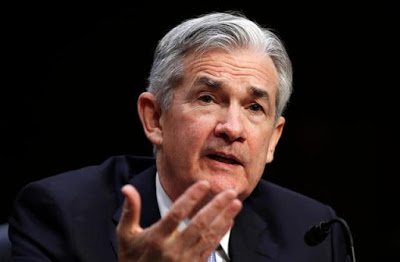Many investors still see environment, social and governance (ESG) factors as values-oriented and either:
- The primary object of focus, with investment outcomes somewhat less important; or
- Distracting from the focus on delivering investment outcomes.
Such a view can be very limiting. In fact, there are different ways of incorporating ESG into portfolios. Some options may, indeed, change short-term performance. However, in many cases, the performance differential may be a positive one.
While it is certainly possible to erode investment returns when strong performance is a subjugated goal, one needn’t start with the assumption that incorporating ESG into the investment process is anything but value-adding when the primary target of the investment process is performance. We believe investing should have sustainable practices embedded within a strategy—with sustainable performance as a primary outcome objective. Investors can incorporate ESG into their investments in a variety of ways, and all of them can accomplish the duality of values and value.
Having an awareness of how ESG factors can improve or erode security value
Pure investment focus
Every active investor seeking value should be aware of how environment, social and governance factors can improve or erode security value. Ultimately values matter, therefore they matter to investing. An exploding oil rig in the Gulf of Mexico will cause many problems for the rig owners, the insurance providers, the fishing suppliers close by, the tourist companies along the shores … and anyone who is charged with the clean-up, including the competitors who will replace the intended supply AND offer safer and cleaner alternatives to the choice of oil as an energy source. Some will win, and many will lose with such an event.
This particular example involves environmental issues given the damage induced from the explosion and oil leakage, social issues relating to equipment and worker safety and governance issues that prevented good decisions from being made in the first place. Understanding who the winners and losers will be from this sort of event is a hallmark of seizing potential investment opportunities that may propel portfolios toward strong excess returns. We believe skilled investors should always incorporate an awareness of how to manage risks and capture opportunities from ESG factors in their portfolios. In a blog from a couple years ago, we captured this view in our discussion of future financial risks and opportunities.
However, a pure investment focus, without expressing a preference for values, may be unsatisfying for many investors.
Avoiding and advancing focus
Many investors seek to avoid securities that are inconsistent with their values while advancing securities that are consistent. While these practices are unlikely to change how companies operate, drive anyone into bankruptcy or improve any organization’s balance sheet, there may be merit to raising awareness or exerting political pressure through investment decisions. What is more pertinent to the tie between values and value is often missed. Many will dismiss avoidance and advancement as value-reducing because of a limited choice set and argue that an optimal outcome cannot be achieved. This value-reduction is not necessarily real in all cases. Where investors need to exercise caution is in how such a strategy is implemented and what outcomes they seek to achieve.
- Implementation is critical to maintain investment value. Ultimately, avoidance and advancement can introduce material unintended risk if not managed well. Therefore, investors should pay special attention to how their investment professionals manage around portfolio restrictions.
- Outcome orientation is not just about investing. Investors may hope to impact the target of avoidance or advancement. Such impact is possible for (a) very targeted cases where the role of the investor is material to the target, such as in private impact portfolios and (b) a holistic approach, including material political pressure and/or large-scale investor movements.
A skilled investment manager should be able to deliver value to investors while incorporating values. In addition, skilled investors have many opportunities to add value to portfolios and should not be intimidated by challenging assignments. Unintended risks need not drive portfolio performance, and opportunities to add value may exist in organizations aligned with investors’ values. In some cases, a longer-term focus may be appropriate for measuring investment outcomes, and appropriate expectations should always be an element in measuring impact.
Regardless of a pure investment focus, an agenda to avoid or advance, or anything in between, investors are owners of the securities they hold.
Active ownership of securities is an effective tool for improving investment outcomes
Ownership focus
Owning shares comes with the potential opportunity to influence how a company operates. Owners can support management on wise decisions and oppose them on poor decision—proxy voting allows for this opportunity. Owners can band together to require decisions that would not have been made in their absence—shareholder engagement allows for this opportunity. Through active ownership, investors may be able to improve both the investment value the company brings, and the values expressed in the operation of the company. Moreover, active ownership may raise the bar for entire industries and foster sustainability along several dimensions. Because large investment shops will always own the market, active ownership can be used vigorously regardless of passive, systematic or active investment type.
Ultimately, ESG is now part of the investing toolkit and it is an important contributor to improving and maintaining value-add. Additionally, ESG is important to investors who need strong returns and want to feel that they achieved them in a way that is consistent with their values.









